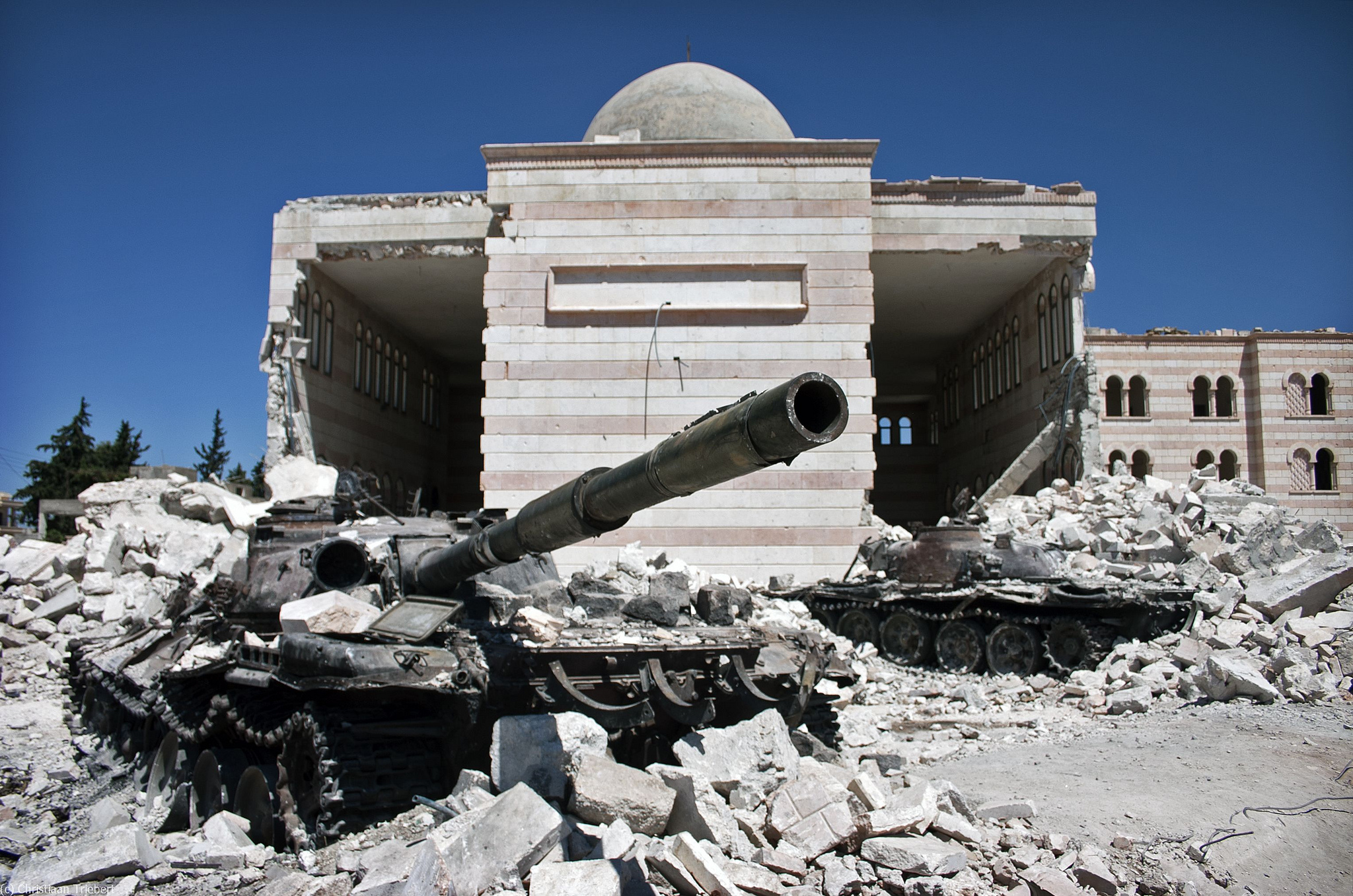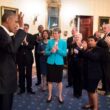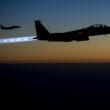In Lebanon, opposition to the minority government led to 15 years of brutal civil war. At the time, President Ronald Reagan was harshly criticized for withdrawing our troops after the bombing of our marine barracks in Beirut. Dire predictions were made by The Hawks who insisted it would erode our credibility and embolden the Soviets. In retrospect, Reagan’s decision was vindicated. It’s clear now we would have entangled ourselves in a years-long quagmire, and the Soviet Union still fell a few short years later.
And now in Syria we’re seeing yet another civil war that will continue for years, no matter what the U.S. does.
One of the great failings of our government, and of the American press, was a profound negligence in asking reasonable questions in the lead-up to the Iraq war. Outlandish assumptions were made and entirely accepted by the media and by a public that was still traumatized by 9/11. Thankfully the current White House remembers that, and this president recognizes that there are a lot of tough questions that need to be asked and answered before the U.S. dives any further into the Syrian conflict.
The situation in Syria has been presented by supporters of intervention as essentially a clear-cut struggle between good and evil. But the reality on the ground there is far more complex. Who are the rebels? They’re certainly not a monolithic group by any means. There are a half dozen different ethnic groups vying for power, with hundreds and hundreds of different militias.
The president’s caution on Syria is completely justified in the broader, historical context. There is undeniably a horrible humanitarian crisis occurring in Syria, but modern history suggests U.S. involvement would be disastrous.
So “rebel” is a generic term. We know there are al Qaeda forces on the ground. How can we ensure any weapons we provide don’t end up in their hands? We can’t control firearms in our own country. Is it rational to suggest we could steer weapons toward the “good rebels” in the chaotic fog of Syrian civil war? Most likely the types of rebel forces and militants that American-supplied weapons will inevitably reach are guys like this, who effortlessly carved out the heart of an Assad supporter and ate it on camera. (Beware, the video is extremely gruesome.)
The losers in this conflict won’t just suffer a disappointing defeat, and then melt back into society and accept the outcome. The losing side will be slaughtered. There is no second place.
So both sides will fight to the death, with no potential for a peaceful resolution. And have those rattling their sabers considered the slippery-slope implications of what happens if we do intervene and even successfully help topple Assad? What’s likely is that there will be an eruption of sectarian cleansing. Most of Assad’s people, the Alawites, will be hunted down and murdered, and the ones who have an opportunity to escape the country, will.
But that would just be the beginning.
Then there would be yet another violent power struggle between the remaining groups in the coalition that we helped defeat Assad’s regime. It would be years before there was any hint of political reconciliation. And it would be impossible to choose sides or figure out who to even root for. After the Iraqi invasion, we had nearly 200,000 troops on the ground and were basically running the country. Yet we still had a very difficult time discerning who we could trust, who our friends were and who the bad guys were.
Many of the proponents of intervention insist ground forces would be completely unnecessary, and that we just need to disable Assad’s military capabilities through surgical air strikes. First, it’s not difficult to envision scenarios in which suddenly American troops would be needed on the ground. Second, do they actually believe that bombing a few of Assad’s military facilities will cure the country of its sectarian strife and prevent massive violence moving forward? That is a wildly unrealistic expectation.
And there’s no question our involvement could lead to other regional conflicts, like a war with Iran (which the neoconservatives have been itching for for years) and it could complicate our tense relationship with Russia, to say the least. Military conflicts of any kind are simply easier to get into than to get out of, and it’s easy to imagine a host of unintended consequences that could bog us down in another war in the Middle East for the next decade.
That’s not to say the US should stand back and do nothing. There are actions we can take to assist in helping alleviate the humanitarian crisis. We can work with Turkey more, for example, which is seeing a massive influx of refugees.
But despite what Obama’s bipartisan critics on this issue say, the president’s sober, long-term assessment of the situation should be a welcomed shift after years of a shoot first, ask-questions-later approach to foreign policy.
It’s not weak, or confused, or “dithering.”
It’s a demonstration that at least some politicians are able to learn the lessons of history.
Doug Daniels is a former staff reporter for Campaigns & Elections. He is the author of the forthcoming memoir Sifting Through the Wreckage.







0 Comments